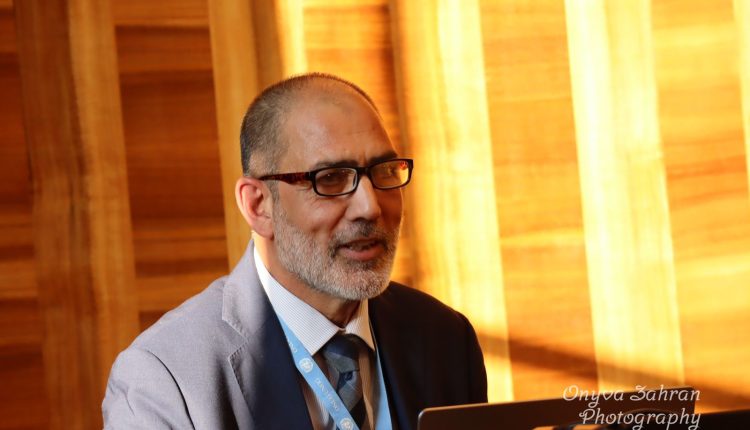Altaf Hussain Wani
A rare and sobering communication from twelve United Nations human rights experts has pierced the global noise, issuing a stark warning that can not be ignored. Referenced as AL IND 8/2025, this document is far more than a routine diplomatic correspondence; it is a meticulous and damning indictment of a new wave of violence and human rights violations unfolding in Indian-occupied Jammu and Kashmir and targeting Muslim communities across the country in the aftermath of the tragic Pahalgam attack in April 2025.
This is not a partisan accusation but a structured, evidence-based appeal from the world’s top independent authorities on counter-terrorism, arbitrary detention, executions, and freedom of expression. Their collective voice transforms scattered reports into a coherent pattern of state-sanctioned abuse, raising urgent questions about India’s commitment to the rule of law and its international human rights obligations.
The experts lay out a chilling catalogue of alleged crimes. The security response to the Pahalgam attack appears to have discarded justice in favour of a brutal, collective punishment. The detention of nearly 2,800 individuals—including journalists and activists—without due process, using draconian laws like the UAPA and PSA, is a recipe for injustice. The reported 54 extrajudicial killings and deaths in custody point to a climate of impunity where torture and summary punishment have allegedly become routine.
Perhaps most shockingly, the communication documents the demolition of homes—a tactic of collective punishment explicitly condemned by international law and, ironically, by India’s own Supreme Court. To destroy ancestral homes of families merely “perceived” to be connected to suspects is to rip apart the very fabric of community and dignity. This practice, mirrored in the mass evictions of thousands of Bengali-speaking Muslims in Assam and Gujarat under the stigmatizing guise of targeting “illegal infiltrators,” reveals a disturbing pattern of majoritarian discrimination masquerading as security policy.
Furthermore, the state’s actions seem designed to suffocate the truth itself. Shutting down communications, blocking thousands of social media accounts, and threatening journalists with detention under anti-terror laws are the tools of an authoritarian playbook, not a vibrant democracy. The discriminatory surveillance of Kashmiri students transforms universities into extensions of the security apparatus, chilling academic freedom and betraying the promise of India’s youth.
The forced displacement of nearly 1,900 Muslims, including vulnerable Rohingya refugees, to Bangladesh and Myanmar, without any due process, constitutes a flagrant violation of the fundamental international law principle of non-refoulement. This action risks returning persons to persecution and underscores a brutal disregard for human life when it is politically inconvenient.
This UN communication carries profound significance as a vital instrument of accountability. Amid official denials and a constrained domestic media, it establishes an authoritative record. It identifies laws such as the UAPA and PSA that facilitate these abuses and underscores their incompatibility with fundamental human rights norms. The report meticulously links specific state actions to violations of the ICCPR, the ICESCR, and customary international law.
The experts’ observations are not adversarial; they represent the fundamental demands of justice: disclose the lists of those detained, clarify the legal bases for demolitions, and investigate unlawful killings. They call for independent inquiries, accountability for perpetrators, and a security policy aligned with the principles of necessity, proportionality, and non-discrimination
The Indian government may be tempted to dismiss this as foreign interference, but doing so would be a serious mistake. This is not a matter of geopolitics; it is a matter of humanity. The experts rightly emphasize that counter-terrorism and human rights are mutually reinforcing. Brutal, discriminatory tactics do not eliminate extremism; instead, they deepen grievances and erode the trust essential for lasting security.
For the sake of its democratic soul and the well-being of all its citizens, India must heed this alarm. It must end collective punishment, halt unlawful demolitions, restore fundamental freedoms, and safeguard its most vulnerable. The credibility of India’s counter-terrorism efforts and its standing as a rights-respecting nation depend on it. The world has spoken with a clear and united voice. The question remains: will India listen?
Author is the chairman of Islamabad based think tank the Kashmir Institute of International Relations (KIIR). He can be reached via email: Saleeemwani@hotmail.com @sultan1913

